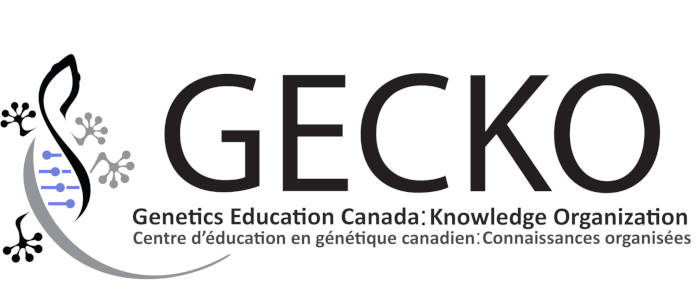
Download the PDF here. Link here for an education module with case-based learning here.
Chromosomal microarray (CMA) is a high resolution genomic test to assess very small gains and losses (copy number variants, CNV) of chromosomal information in an individual or pregnancy. CMA is expected to replace standard karyotyping for invasive prenatal testing investigations because of its increased diagnostic yield.
When CMA should be considered in the prenatal setting is controversial. In general CMA should be offered in cases where ultrasound or fetal MRI has revealed structural abnormalities. Patients should receive comprehensive pre-test and post-test counselling by a qualified healthcare professional (e.g. genetic counsellor or geneticist) so that the benefits, limitations and possible outcomes of the analysis can be discussed in detail.
Results may be normal (no significant CNV detected), abnormal (pathogenic CNV detected with known clinical consequence which can include a range of physical, developmental and mental health issues), a variant of unclear clinical significance (VUS, a CNV with unknown clinical consequences) or an incidental finding (a finding unrelated to the initial reason for testing e.g. carrier status for a recessive condition).
Updated Nov 2015
What is chromosomal microarray?
Chromosomal microarray (CMA) is a cytogenetic test used to determine if there are chromosomal imbalances, either large (e.g. whole extra or missing chromosomes, also detected by standard karyotype) or smaller extra (micro-duplication) or missing (micro-deletion) pieces of genetic information, also called copy number variants (CNV). Micro-duplications or micro-deletions may be associated with significant health and/or developmental problems despite their small size. See more on CMA for paediatric indications here.
Copy number variants (CNV) make an important contribution to genetic variation and human disease and may comprise about 13% of the human genome. CNVs can be inherited or de novo.
A CNV which is known to cause health and/or developmental problems is called “pathogenic”. The true extent of consequences related to a CNV depends on the particular gene(s) lost or gained and how gene function is altered when present in a different copy number. Depending on the indication for CMA, the chance of finding an abnormal result varies. About 1-2% of pregnancies, where the only indication for invasive prenatal testing is advanced maternal age, will have a clinically significant finding on CMA following a normal karyotype (consistent with the general population prevalence of CNV). About 6.5% of pregnancies, where a single ultrasound abnormality is detected, will have a clinically significant finding on CMA following a normal karyotype.
A CNV whose clinical significance is not clear is called a “variant of uncertain/unclear significance” (VUS/VOUS). This is a genomic variant that has not yet been categorized as benign or pathogenic, either because too few cases have been reported in the literature or the affected gene’s content and/or function are not yet understood. Some variants may be interpreted as ‘likely pathogenic’ or ‘likely benign’. A VUS can be expected in about 1% of prenatal cases.
Who should be offered prenatal chromosomal microarray?
Indications for offering CMA to a patient in the prenatal setting vary regionally. Whether or not to offer CMA to all women having invasive prenatal testing or only to women who are at increased risk is controversial. Contact your local genetics centre to learn more about when CMA is offered to your patient population. In general, recommendations from Canadian professional societies (Canadian College of Medical Geneticists (CCMG) and Society of Obstetricians and Gynaecologists of Canada (SOGC)) state:
CMA may be an appropriate investigative measure in cases with fetal structural abnormalities detected on ultrasound or fetal MRI
- CMA is generally not recommended in pregnancies at increased risk for a numerical chromosomal abnormality (aneuploidy) e.g. associated with advanced maternal age, positive maternal serum screen. In these circumstances, current standard of care is to offer second tier screening such as non-invasive prenatal testing (NIPT) or diagnostic testing with QF-PCR, a technology which detects common aneuploidies: Down syndrome, Trisomy 18, Trisomy 13 and sex chromosome aneuploidies.
CMA is also recommended for investigation of fetal demise or stillbirth.
Canadian guidelines strongly support patients receiving comprehensive pre-test and post-test counselling by a qualified healthcare professional (e.g. genetic counsellor or geneticist) so that the benefits, limitations and possible outcomes of the analysis can be discussed in detail.
What does the test result mean?
The classification of a CNV is based on size, inheritance, gene content and clinical relevance as determined by information in various databases (DECIPHER, OMIM) and published literature in addition to reference populations (public/private). Generally, there are four possible results of CMA testing. Patients should be counselled about all possible outcomes.
- Normal Result
No clinically significant copy number changes were identified in the DNA of this specimen in the areas tested.
- What does this result mean?
- Excludes a micro-deletion/micro-duplication (CNV) within the limits of resolution of the test (typically very high).
- What are the limitations of this result?
- CMA is not able to detect balanced genomic rearrangements, low levels of mosaicism, and mutations within single genes, so a normal CMA result does not completely rule out a genomic abnormality.
- What are the next steps?
- Even with normal CMA results, a referral for genetic consultation should be considered, depending on the initial reason for the invasive prenatal testing, so that additional genetic testing may be offered where appropriate. For example, if the ultrasound finding that triggered invasive testing was a cystic hygroma, your patient may be offered single gene testing for Noonan syndrome.
- Pathogenic micro-deletion or micro-duplication (CNV)
A pathogenic CNV is known to be associated with an abnormal phenotype. There are over 200 known pathogenic CNVs and this number is increasing with CMA use.
- What does this result mean?
- Provides insight to the genomic etiology of ultrasound findings and may assist in counselling about prenatal and postnatal outcomes and management options e.g. 22q11 deletion, also known as DiGeorge syndrome, characterized by congenital heart disease (74%), palatal abnormalities (69%); learning difficulties (70%-90%); immune deficiency (77%); hypocalcemia (50%); renal anomalies (31%); autism or autistic spectrum disorder (20% of children); psychiatric illness (specifically schizophrenia, 25% of adults).
- May not be related to the ultrasound finding (see incidental findings) but may have implications for future care e.g. duplication of the PMP22 gene causes Charcot-Marie-Tooth 1: additional family testing and screening and neurology consult in adolescence/early adulthood would be suggested
- What are the limitations of this result?
- Not all pathogenic findings are associated with a severe clinical presentation, and the clinical presentation can be extremely variable. Uncertainty often remains and may cause anxiety for a pregnant couple.
- What are the next steps?
- Genetic counselling is recommended to review significance of finding, provide information resources and support and, depending on the CNV, discuss further testing/change in medical management (e.g. fetal echocardiogram, delivery hospital choice) and discuss the implications associated with parental testing.
- Variation of unclear clinical significance (VUS/VOUS)
- What does this result mean?
- Not every CNV in the genome has been classified as yet as pathogenic or benign
- A variant that has not been described in the literature is challenging to interpret. Knowledge of parental status will determine whether or not the CNV is familial, and less likely to be pathogenic, or de novo (new in the affected individual) and more likely pathogenic
- What are the next steps?
- Parental samples should be obtained and analysed, then refer to genetics, if not already initiated
- Incidental finding (IF)
- What does this result mean?
- An IF is a genetic variant(s) – either benign or pathogenic – identified by a genetic test that is unrelated to the primary indication for testing. In the prenatal setting, IF more commonly refers to findings which do not have a direct consequence for the fetus, but may have implications postnatally for the individual or for his/her relatives (see example of Charcot-Marie-Tooth disease in pathogenic CNV section above).
- An IF may signify
- Presence of late-onset disorder with result having clinical utility e.g. hereditary cancer syndrome
- Presence of late-onset disease without therapeutic possibilities e.g. Alzheimer disease risk
- Carrier status for autosomal recessive or X-linked diseases e.g. cystic fibrosis (CF), Duchenne Muscular Dystrophy (DMD)
- Parental consanguinity
- What are the next steps?
- Genetic counselling is recommended to review significance of finding, provide information resources and support and, depending on the CNV, discuss further testing or medical management recommendations.
Resource
Unique – Disorder Guides – Unique has been collecting information about specific chromosome disorders in their offline database for nearly 30 years and produces family-friendly, medically-verified, disorder-specific information guides.
Orphanet – A reference portal for information on rare diseases and orphan drugs, for all audiences
Visit www.geneticseducation.ca to connect to your local genetics centre. You may also wish to consult your local maternal-fetal medicine (MFM) specialist or high risk obstetrician/gynaecologist depending on the reason CMA has being considered. If there are terms that require further elaboration please visit the GEC-KO Glossary in Educational Resources.
Authors: S Morrison MS CGC, H Sroka MSc (C)CGC, JE Allanson MD FRCPC and JC Carroll MD CCFP
Disclaimer:
· GECKO is an independent not-for-profit program that does not accept support from commercial or non-academic entities.
· GECKO aims to aid the practicing non-genetics clinician by providing informed resources regarding genetic/genomic conditions, services and technologies that have been developed in a rigorous and evidence-based manner with periodic updating. The content on the GECKO site is for educational purposes only. No resource should be used as a substitute for clinical judgement. GECKO assumes no responsibility or liability resulting from the use of information contained herein.
· All clinicians using this site are encouraged to consult local genetics clinics, medical geneticists, or specialists for clarification of questions that arise relating to specific patient problems.
· All patients should seek the advice of their own physician or other qualified clinician regarding any medical questions or conditions.
· External links are selected and reviewed at the time a page is published. However, GECKO is not responsible for the content of external websites. The inclusion of a link to an external website from GECKO should not be understood to be an endorsement of that website or the site’s owners (or their products/services).
· We strive to provide accurate, timely, unbiased, and up-to-date information on this site, and make every attempt to ensure the integrity of the site. However, it is possible that the information contained here may contain inaccuracies or errors for which neither GECKO nor its funding agencies assume responsibility.


